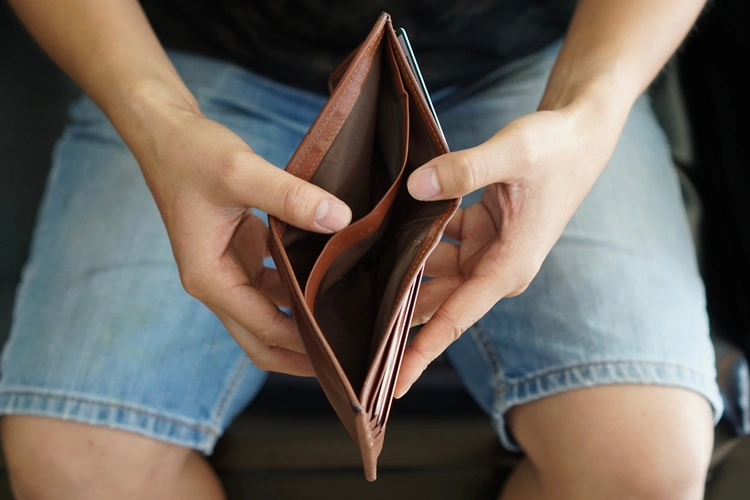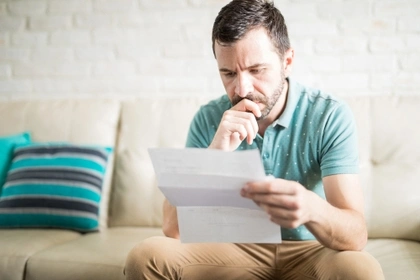Do you need to be employed to get a credit card?
Some credit cards are only open to people with a job or who earn over a certain amount. However, there are cards available for unemployed people – if they can show they can afford the repayments. Being unemployed won’t necessarily stop you for getting a card - if you can show you have another source of income (such as benefits or income from a partner, for example). Whether you’ll be accepted for one depends on your financial situation and the lender’s criteria.
While it may be possible to get a credit card while you’re unemployed, it’s likely that you will have less options than somebody who is.
If you decide to take out a credit card, you must be confident that you can make your repayments each month, otherwise, you could find the bills quickly pile up. Bear in mind, if you are accepted, you’ll need to be prepared to pay more interest or have a lower spending limit.
What information do lenders need?
When you apply for a credit card, the lender will do a credit check to assess your ability to make repayments. They use your past financial behaviour to predict your behaviour in the future.
You’ll also need to fill in an application form, answering questions about your financial circumstances, including your income. They’ll use this information to work out your affordability and how risky it’d be to lend to you.
It’s important to note that different lenders will use different systems for working out your credit score. You might be accepted by one lender and refused by another.
While they won’t tell you your credit score, you can ask them which credit reference agency they used, and they must give you that information. You can also check if the information on your credit report is correct. If not, make sure the relevant credit reference agency updates your records as soon as possible. Otherwise, mismatched information can show as a red flag and put potential lenders off.
Things to consider before applying
Before applying for a credit card, you will need to consider all these questions to ensure you make the best financial decision for your circumstances.
Is there room in your budget?
If you’re unemployed you may be on a tight budget. Before applying for a credit card, you should think about whether you can afford the monthly repayments, potential interest, and any other associated costs.
It could be a good idea to sit down and work out a monthly budget for essentials like your mortgage or rent, bills and food. If you can afford a credit card, then getting one could be a good way to build up your credit score (as long as you pay at least the minimum amount on time, each month).
If you are struggling to find room in your budget, then a credit card may not be the best option for you. If you fall behind with your repayments, you could be charged a penalty fee and your credit score will suffer. This could affect your ability to get finance in the future.
What do you need the credit card for?
Whether getting a credit card is right for you could also depend on what you need it for. If you need it for an essential purchase, like a boiler repair, a credit card may be a good short-term option. If you’re looking to make a non-essential purchase, then consider whether the pros outweigh the cons.
If you are coming into money very soon (for example, if you’re waiting to start a new job and you just want to use the credit card to keep you afloat for a couple of weeks), it may be a viable option. But be careful and consider the fact that your circumstances may change.
If you need the credit card to top up your income in the long run, then it’s unlikely that you’ll be able to afford the monthly repayments – and you could quickly spiral into debt.
Can you make the repayments?
Once you take out a credit card, you’ll need to make at least the minimum monthly repayments. If you want to avoid interest being added to the balance though, you will need to pay off the full amount each month.
Remember, missing just one payment can hurt your credit score and result in fees and charges from your lender. Missing around three to six repayments can lead to your account defaulting, which will knock your credit score significantly and stay on your credit report for six years.
Tip: Set up a direct debit from your account if you are worried about forgetting to pay.
Managing your credit score while unemployed
Being unemployed won’t normally affect your credit score because it’s unlikely your employment status will appear on a credit check. However, changes in your income could lead to financial difficulty and behaviour that can affect your credit score.
When you’re unemployed, it’s best to get a card with a low credit limit because you’re less likely to be able to afford large monthly repayments. It’s unlikely that you’ll be accepted for a card with a large credit limit anyway, but you should still be careful not to borrow more than you can afford to repay.
Rebuilding your credit history
There are credit cards available for people who have got a bad credit history, which can help you rebuild your credit history. If you are eligible for a ‘bad credit’ credit card, then it could help you rebuild your credit score – if you use it sensibly. By paying off the full amount on your credit card on time each month you can improve your credit score.
Not all these cards will necessarily be available to those who are unemployed though, as some will specify a minimum income. Make sure you’re aware of any restrictions before you apply.
It’s also important to note that not paying at least the minimum payment on time will damage your credit history further. So, make sure you can afford a credit card before you apply for one.
Shop around for the best deal
To find the right credit card for you, you could visit a card comparison website, or contact a broker like Ocean. This will give you an idea of the current deals available.
We also suggest you use an eligibility checker, which will tell you the likelihood of being accepted before you apply. It won’t affect your credit score, so you can use it as many times as you like. Armed with this information, you’ll have a better idea of the cards that you are eligible for, and so reduce the number of applications you make and the risk of rejection.
Ocean Credit Card
See if it's a YES before you apply
- Up to £1,500 credit limit
- Checking won't affect your credit score
- Get a response in 60 seconds
39.9% APR
Representative (variable)
Intelligent Lending Ltd (credit broker). Capital One is the exclusive lender.

Disclaimer: We make every effort to ensure content is correct when published. Information on this website doesn't constitute financial advice, and we aren't responsible for the content of any external sites.






